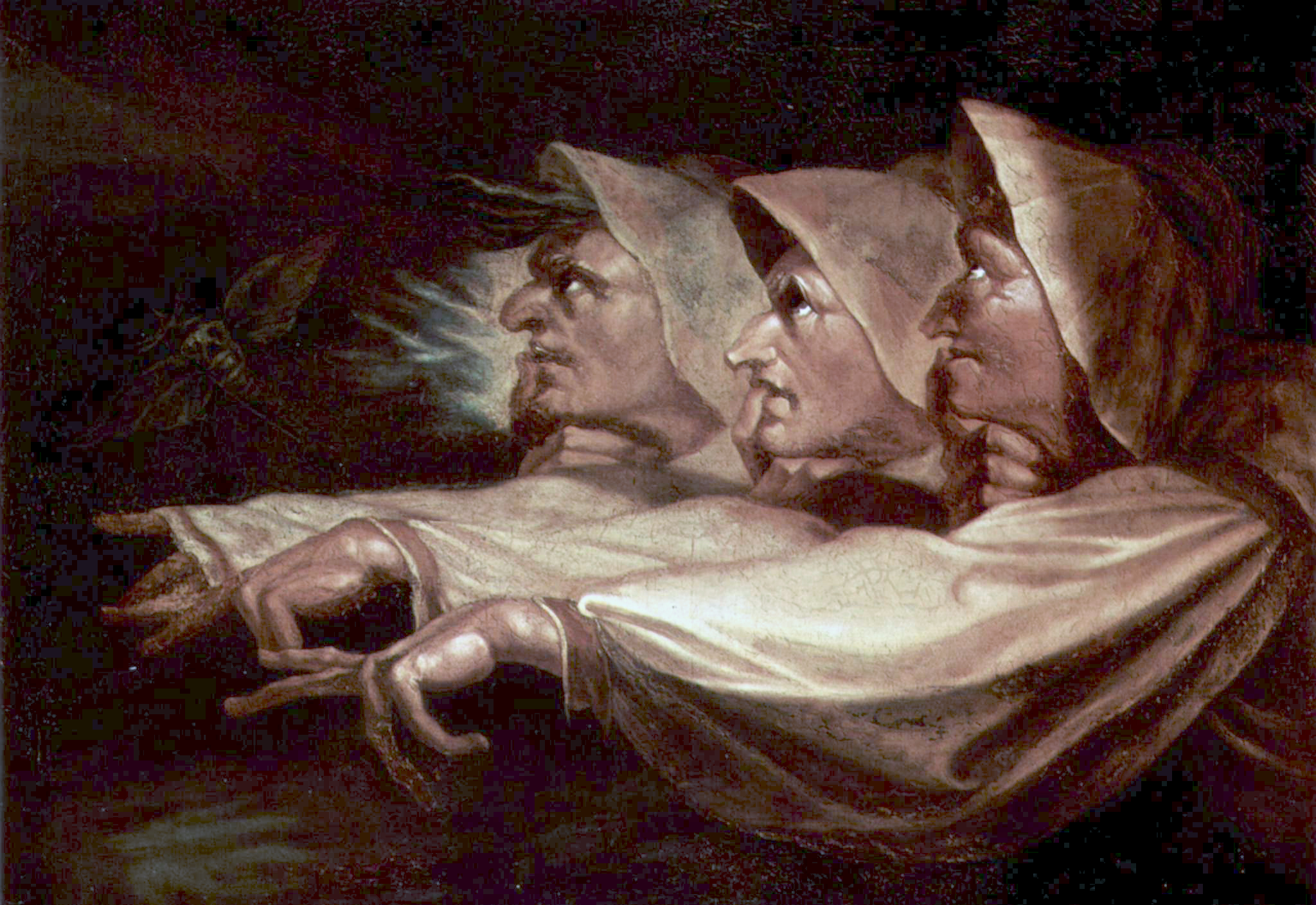 |
| The Weird Sisters, Henry Fuseli (1783). |
Weird derives from the Old English wyrd, meaning fate or destiny, whose antecedent was probably the Proto-Germanic wurthis, which literally means "that which comes." Similar words include wurd from Old Scottish, wurt from Old High German, and the Old Norse urðr, which referred to fate, one of the three Norns. According to Norse mythology, the Norns are female goddesses who control one's destiny. They are comparable to the Fates from Greek mythology. Snorri Sturluson identifies Urðr (Wyrd), Verðandi and Skuld as the most important Norns and portrays them as maiden giantesses who draw water from the Well of Urðr to care for Yggdrasill, the giant ash tree at the center of Norse mythology.
The phrase "weird sisters" was used in Middle English to reference the Norns. Artists portrayed the weird sisters as frightening in appearance and character. Consider the three witches from Macbeth. The adjective weird developed from its association with the uncanny sisters.
Linguistics is so much fun. This is one word I've always wondered about, too. Pretty cool how words like this change over time.
ReplyDeleteThanks for reading, Court. The difference between the noun and the adjective in the dictionary does leave you wondering.
DeleteExcellent post; I love this word. One of the main characters in my upcoming novel is called Cate Weerd as a nod to "wyrd".
ReplyDeleteCool name, Simon. I'm looking forward to Hedge Witch.
Delete